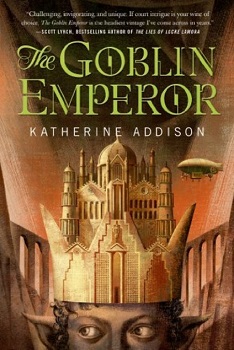Eric Flint, in the middle of another what’s likely to be an illfated attempt to talk sense into the Puppies, also talks about the way in which the Hugo Awards have overlooked or slighted some of the best authors working in science fiction & fantasy over the decades:
The Hugo voters, in their wisdom or lack thereof, decided that Christopher Anvil, Hal Clement, L. Sprague de Camp, Richard Matheson, Andre Norton, Fred Saberhagen, James H. Schmitz, A.E. Van Vogt and Jack Williamson were not very noteworthy. Of those nine authors, five of them are now in the Science Fiction Hall of Fame and two out of the other four—Anvil and Schmitz—have had their complete works reissued in modern editions. (Full disclosure: Okay, fine, I’m the one who edited those reissues—but they sold pretty damn well for reissue volumes.)
Quite clearly, the Hugo voters were… ah, mistaken. (That sounds more dignified than “full of crap.”) Those are not the only times that Hugo voters have been…. ah, mistaken. They certainly won’t be the last, either. In this, the Hugos are like all awards. You win some, you lose some, so to speak.
It would be nitpicking to complain that Jack Williamson and Richard Matheson at least did get some Hugo recognition, that Van Vogt wrote his best work before the Hugos got established, or that some of the examples aren’t actually all that good, there still remains the question of how so many writers with such long careers were overlooked (and Flint’s examples could of course be extended with dozens more). Is that really the fault of the Hugo voters, just bad luck, or perhaps the simple fact that not all deserving kids can win prizes every time?
Surprisingly, I think it’s the latter. The long and short of it is that in any given year, there are twenty places on the Hugo ballot for a fiction writer: five each for Best Novel, Novella, Novelette and Short Story, give or take the occasional tie. That’s a high bar to clear for any writer, to get one of those slots, never mind win. Especially since the seventies, when fantasy and science fiction have exploded in popularity and size, the chances are high some deserving novel or story is going to be overlooked. (I know that even without the Puppy shenanigans, I easily had six or seven candidates for five slots in the Best Novel category.)
I think Flint has made a category error in other words, in complaining that deserving writers have been overlooked when the awards are actually for stories. It’s no good saying that a given writer is good enough to get a Hugo Award, you need to prove that in a given year, any given year, their best work would stack up to or beat that of their competition. And of course you also have to back that up with more than just your own taste. Jo Walton attempted to do this, in a series for Tor.com a few years ago, comparing what was won and nominated to what wasn’t, but as I recall for the most part she’d been satisfied that each year at least had credible candidates for each category, with some notable exceptions.
Now my personal opinion, which I think I share with Flint up to a point, is that the Hugos did start to falter from somewhere in the late seventies or early eighties as the SFF field exploded but Worldcon stagnated and aged. So many of the novels winning the Hugos in the last thirty years to me are no more than decent rather than brilliant, occasionally awarded for who wrote rather than their own merits. This again changed for the better in more recent years, thanks in no small measure to the Hugo Voter Packet and the better promotion of supporting memberships, but then the Puppies happened.
